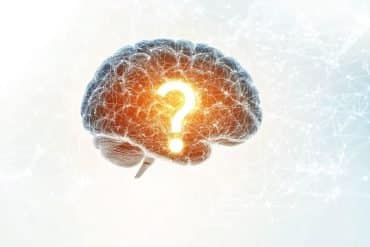Summary: Students who spend a significant amount of their time surfing the web have lower motivation to study and reduced academic performance.
Source: Swansea University
Research conducted at Swansea University and the University of Milan has shown that students who use digital technology excessively are less motivated to engage with their studies, and are more anxious about tests. This effect was made worse by the increased feelings of loneliness that use of digital technology produced.
Two hundred and eighty-five university students, enrolled on a range of health-related degree courses, participated in the study. They were assessed for their use of digital technology, their study skills and motivation, anxiety, and loneliness. The study found a negative relationship between internet addiction and motivation to study. Students reporting more internet addiction also found it harder to organise their learning productively, and were more anxious about their upcoming tests. The study also found that internet addiction was associated with loneliness, and that this loneliness made study harder.
Professor Phil Reed of Swansea University said:
“These results suggest that students with high levels of internet addiction may be particularly at risk from lower motivations to study, and, hence, lower actual academic performance.”
About 25% of the students reported that they spent over four hours a day online, with the rest indicating that they spent between one to three hours a day. The main uses of the internet for the student sample were social networking (40%) and information seeking (30%).
Professor Truzoli of Milan University said: “Internet addiction has been shown to impair a range of abilities such as impulse control, planning, and sensitivity to rewards. A lack of ability in these areas could well make study harder.”

In addition to the links between levels of internet addiction and poor study motivation and ability, internet addiction was found to be associated with increased loneliness. The results indicated that loneliness, in turn, made studying harder for the students.
The study suggests that loneliness plays a large role in positive feelings about academic life in higher education. The poorer social interactions that are known to be associated with internet addiction make loneliness worse, and, in turn, impact on motivation to engage in a highly social educational environment such as a university.
Credit: Swansea University.
Professor Reed added: “Before we continue down a route of increasing digitisation of our academic environments, we have to pause to consider if this is actually going to bring about the results we want. This strategy might offer some opportunities, but it also contains risks that have not yet been fully assessed.”
Source:
Swansea University
Media Contacts:
Mari Hooson – Swansea University
Image Source:
The image is in the public domain.
Original Research: Open access
“Problematic internet use and study motivation in higher education”. Roberto Truzoli, Caterina Viganò, Paolo Gabriele Galmozzi, Phil Reed.
Journal of Computer Assisted Learning doi:10.1111/jcal.12414.
Abstract
Problematic internet use and study motivation in higher education
The current study explored the relationship between problematic internet use (PIU) and motivation to learn, and examined psychological and social factors mediating this relationship. Two hundred and eighty‐five students in an Italian University were recruited for the current study. There was a negative relationship between PIU and motivation to study: a negative impact on learning strategies, meaning that the students found it harder to organize their learning productively; and PIU also positively associated with test anxiety. The current results also demonstrated that there was partial mediation of this effect of PIU on learning strategies in terms of loneliness. This suggest at those with high levels of PIU may be particularly at risk from lower motivations to study, and, hence, lower actual generalized academic performance due to a number of consequences of PIU.







